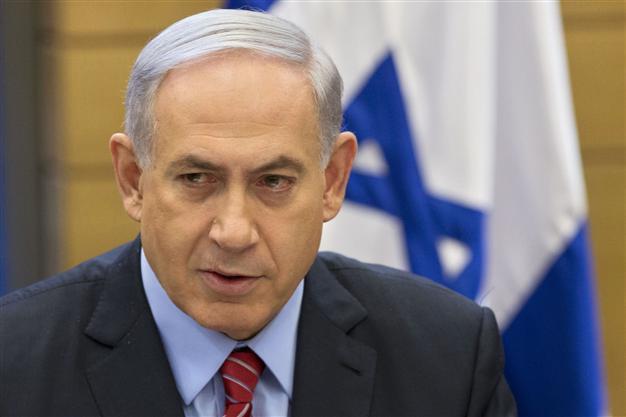US withholding details of Iran nuke talks from Israel
WASHINGTON - The Associated Press

Israeli Prime Minister Benjamin Netanyahu. AP Photo
The Obama administration said Wednesday it is withholding from Israel some sensitive details of its nuclear negotiations with Iran because it is worried that Israeli government officials have leaked information to try to scuttle the talks - and will continue to do so.In extraordinary admissions that reflect increasingly strained ties between the U.S. and Israel, the White House and State Department said they were not sharing everything from the negotiations with the Israelis and complained that Israeli officials had misrepresented what they had been told in the past. Meanwhile, senior U.S. officials privately blamed Prime Minister Benjamin Netanyahu himself for "changing the dynamic" of previously robust information-sharing by politicizing it.
The comments came as a late March deadline to forge the outline of an Iran nuclear deal looms and U.S. and Iranian negotiators prepare for a new round of talks later this week in Geneva, Switzerland.
Netanyahu has angered the White House with his open opposition to a deal he believes threatens Israel's existence, and by accepting a Republican invitation to address Congress about Iran in early March without consulting the White House, a breach of diplomatic protocol.
White House Press Secretary Josh Earnest told reporters that sharing all details of the negotiations with governments that are not at the table would complicate efforts to get a deal that would prevent Iran from developing a nuclear weapon in exchange for sanctions relief. The talks are being held among the five permanent members of the U.N. Security Council - Britain, China, France, Russia and the United States - along with Germany and Iran.
"The United States is not going to be in a position of negotiating this agreement in public, particularly when we see that there is a continued practice of cherry-picking specific pieces of information and using them out of context to distort the negotiating position of the United States," Earnest said when asked whether the U.S. was limiting the amount of information it shared with Israel about the talks.
"So, there is an obligation when you're participating in these kinds of negotiations to ensure that those consultations and that those negotiations are carried out in good faith. And that means giving negotiators the room and the space to negotiate," he said.
State Department spokeswoman Jen Psaki went further, confirming that one of the steps the administration takes to ensure that "classified negotiating details stay behind closed doors" is to withhold them from Israel. She also directly blamed Israel for mischaracterizing the talks.
"I think it's safe to say that not everything you're hearing from the Israeli government is an accurate reflection of the details of the talks," she said. "There's a selective sharing of information."
But while Earnest and Psaki said the limitations on information sharing were longstanding, U.S. officials more directly involved in the talks said the decision to withhold the most sensitive details of the negotiations dated back only several weeks.
Those officials, speaking on condition of anonymity because they were not authorized to speak publicly, said the administration believes Netanyahu, who is facing a March 17 election at home, has made a political decision to try to destroy the negotiations rather than merely insist on a good deal. This, they said, had led to politically motivated leaks from Israeli officials and made it impossible to continue to share all details of the talks, particularly as Netanyahu has not backed down on his vow to argue against a nuclear deal when he speaks to Congress.
Neither Earnest nor Psaki would discuss the details of the leaks, but senior U.S. officials have expressed consternation with reports in the Israeli media as well as by The Associated Press about the number of centrifuges Iran might be able to keep under a potential agreement. Centrifuges are used to enrich uranium and diplomats familiar with the talks have said Iran may be allowed to keep more of them in exchange for other concessions under current proposals that are on the table.
















